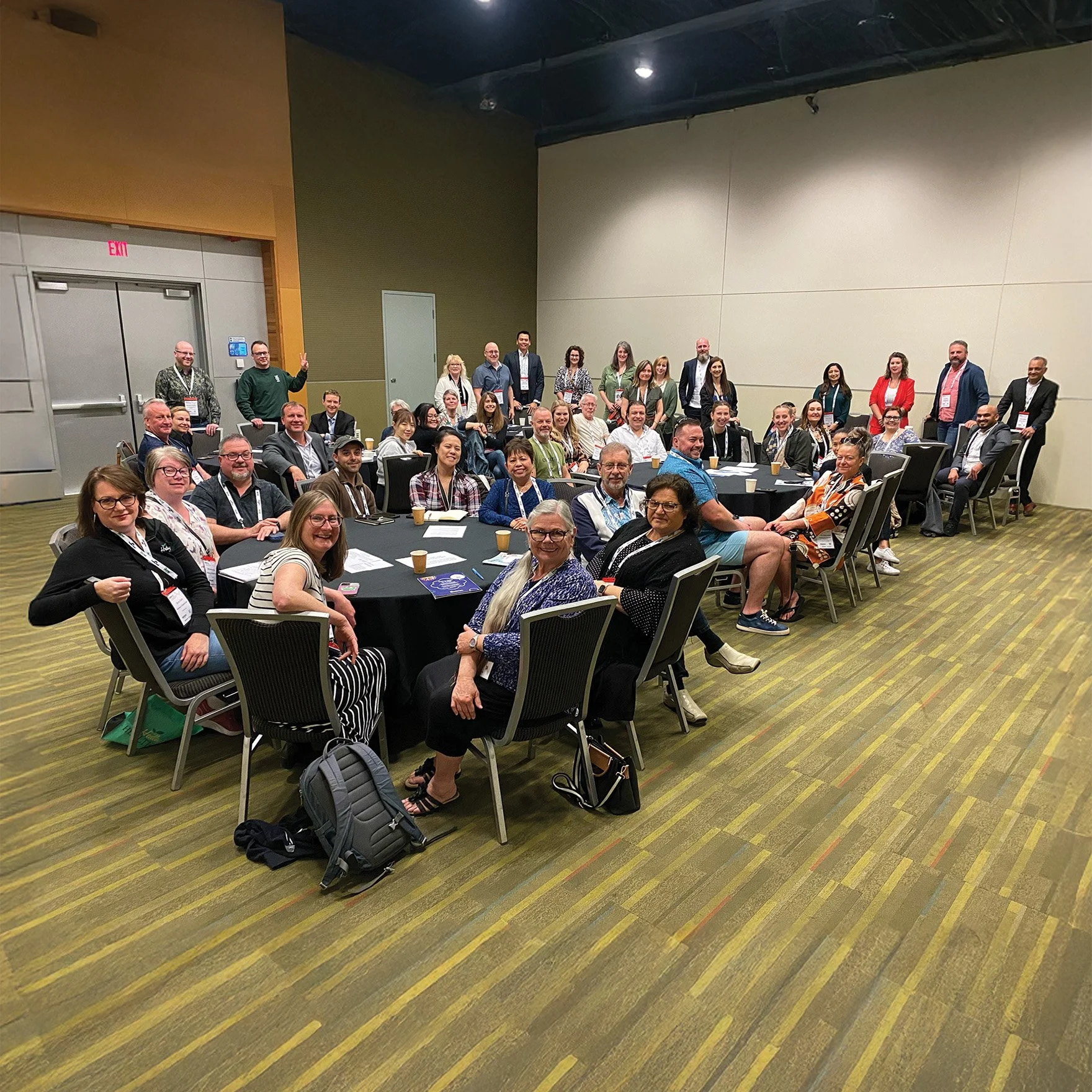Retailers in conversation: insights from CHFA’s second Retailer Roundtable, Vancouver 2025
By Vibha Shukla
Following a successful debut at CHFA NOW Vancouver 2024, the Retailer Roundtable—hosted by Bruce W. Cole, editor and founder of CNHR—returned to this year’s show and was met with an overwhelming response from retailers.
This year, the roundtable session provided a timely opportunity for retailers to come together and share insights, discuss emerging trends, and exchange creative solutions to key challenges and opportunities shaping today’s retail landscape, including how to:
Navigate tariffs and supply chain challenges
Retailers kicked off the session with discussion on how they were adapting to market shifts with tariffs and consequent supply chain disruptions taking centre stage. They suggested focusing on consumer education, pricing strategies, and becoming more “tariff-proof.”
In response to cross-border tariffs, Canadian consumers are increasingly opting for local and Canadian products. Most retailers have responded by adding shelf talkers, “Canadian Made” stickers, and posters to promote domestic brands to align with consumer values. Additionally, positioning Canadian products next to their US counterparts has proven to be effective in offering options to consumers.
Another area of focus has been seeking and building local partnerships by connecting with local companies, leveraging vendor and CHFA discounts, and passing savings on to customers.
Further, retailers suggested slimming down inventories as a last resort to absorb the increased cost of tariffed products, allowing stores to continue offering items that meet consumer needs.
For all retailers, maintaining ties with US brands remains important, with hopes of resuming stronger collaboration once tariffs are resolved.
Enhance customer experience to drive sales
Next, the group discussed their strategies to improve customer retention, emphasizing the importance of understanding the why behind their efforts and ensuring those efforts are sustainable.
Retailers agreed that building a strong foundation of trust creates lasting customer connections. While external factors like tariffs may temporarily shift consumer habits, consumers often return to the brands they trust. That’s why building strong connections matters—whether habits shift or stay the same, customers will turn to you for their health and wellness needs.
Anticipating your customers’ needs and guiding them to the right product fosters loyalty, especially when they feel confident and informed in their purchases. Consumers want to feel good about their purchases, and retailers can help with that through informed shopping.
Supporting inclusive initiatives—such as brands owned by women, BIPOC, youth, newcomers, or neurodivergent individuals—helps customers feel aligned with their values and community.
And lastly, small gestures matter: a friendly greeting or simple eye contact can leave a lasting impression and reinforce a sense of consumer loyalty.
Build and motivate high-performing teams
Whether a business is big or small, its success depends on hiring the right people. During the session, retailers emphasized the importance of hiring and retaining valued employees, particularly in times of economic uncertainty or rapid change.
Employee retention policies can vary depending on the size of the business. For larger retailers with multiple locations, participants suggested that establishing touchpoints—like district, area, and assistant managers—can help foster a stronger sense of connection among employees.
Additional strategies to build employee community and motivation include fostering a sense of ownership and pride in their work, encouraging decision making, and actively incorporating their feedback.
Offering health benefits, monthly incentives, bonuses, RSP matching, and training and educational opportunities can help foster a positive work environment for your team. Additionally, engaging employees through profit-sharing initiatives can boost their motivation and commitment.
Create collaborative partnerships to boost growth
Collaboration with local businesses and suppliers was top of mind for most retailers as they grapple with uncertain policies. From co-packaging arrangements to exclusive partnerships with new and local producers, retailers are looking for ways to create an engaging store experience and stand out in the market.
Popular collaboration strategies included hosting branded fridges and freezers, pop-up shops, and food events to drive sales by creating a buzz around new products. Retailers talked about how successful collaboration extends beyond their stores—participating in local events, street fairs, and community initiatives may not directly result in sales but will help in fostering a bond between the store and the community.
When businesses collaborate with local organizations and support local causes, they enhance their reputation and create a sense of belonging within the community. This can eventually help boost sales by bringing in customers who are socially conscious and looking for brands with similar values.
Innovate and adapt in a changing market
In a time when change is constant, innovation and adaptability are the driving forces behind many successful businesses. Health food stores have embraced these principles wholeheartedly to navigate market shifts, technological advancements, and evolving customer expectations.
Many stores are turning to AI to better understand customer behavior, manage inventory, and predict trends. For example, many retailers have used predictive models to determine how much of a product to order and to anticipate what customers will want based on past purchasing data.
While innovation and technology are helping to drive sales, retailers emphasized the importance of personalized customer service—keeping the staff engaged and energized about new products and promoting an informative experience for the consumers is what sets natural health retailers apart. Retailers concluded that the natural health industry can thrive by balancing tradition with innovation.

